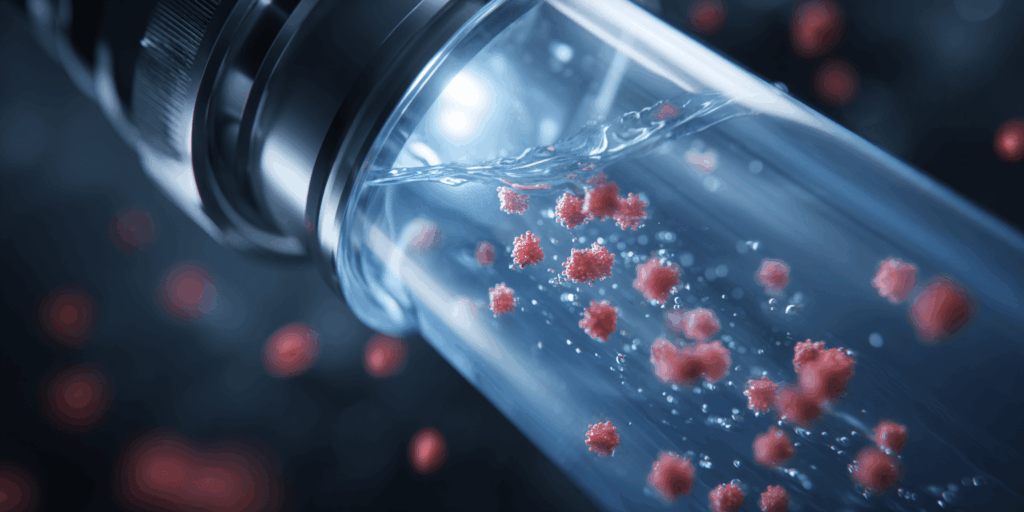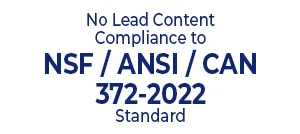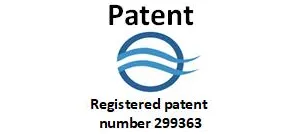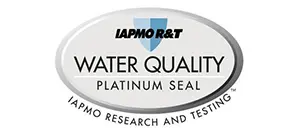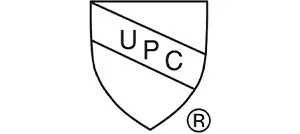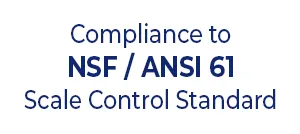Introduction: What You Can’t See Can Harm You
Crystal-clear tap water may still carry dangerous microscopic organisms—from Giardia and Cryptosporidium to E. coli and Legionella. These parasites and bacteria can cause anything from mild stomach upset to life-threatening illness, especially for children, seniors, or people with weakened immune systems.
Protecting your home requires more than a kitchen filter. It demands a two-layer approach:
- Whole-house filtration down to 1 micron (for showers, faucets, and pipes)
- Drinking water filtration down to 0.007 microns (for the most sensitive consumption and cooking)
Let’s explore the science—and the smart solutions.
-
Boiling and Chlorine: Old Methods With Limits
- Boiling water kills many bacteria and parasites (1–3 minutes at full boil), but it’s not practical for daily life and doesn’t remove chemicals or heavy metals.
- Chlorination is effective but introduces byproducts like trihalomethanes, and parasites like Cryptosporidium can survive it.
- UV treatment inactivates microbes, but only works on clear water and doesn’t remove anything.
These methods are useful—but not sufficient on their own.
-
Micron-Based Filtration: The Modern Gold Standard
To physically block bacteria and parasites, filtration systems must meet specific pore-size requirements:
| Contaminant | Minimum Filter Rating Required |
| Giardia, Crypto | 1 micron or finer |
| E. coli, Salmonella | 0.2–0.5 micron |
| Viruses | <0.01 micron |
That’s why top systems use a layered micron strategy:
- 1 micron at the whole-house level → keeps parasites and bacterial colonies out of pipes, showers, and laundry.
- 0.007 micron at the point-of-use → eliminates even the smallest contaminants from drinking water.
- Two-Stage Protection: TipaTech’s T-18 and LotusDY
TipaTech T-18 Whole-House Filter (1 Micron)
- Filters out parasites and bacteria before they spread into your plumbing
- Captures undissolved gases like radon and chlorine—often inhaled during showers
- Prevents scale without salt or chemicals
- Reduces heavy metals and microplastics
- Flushes easily once a month, no disassembly required
Why it matters: Bacteria don’t just live in your drinking water—they grow in your pipes, get into your steam, and cling to your skin. Stopping them at the entry point is critical.
LotusDY Under-Sink Filter (0.007 Microns)
- Traps parasites, bacteria, and even viruses with ultrafiltration
- Separate waste chamber prevents recontamination
- Preserves essential minerals like magnesium and calcium
- Adds antioxidant-rich magnesium and delivers water with negative ORP (Oxidation-Reduction Potential)
- No electricity, no sewer line, no water waste
Why it matters: Most filters stop at 0.1 microns. But parasites can be smaller, and viruses much more so. The best water filter for bacteria, filtering to 0.007 microns provides unmatched peace of mind.
- Why This Combo Outperforms Reverse Osmosis
Reverse osmosis (RO) systems are often marketed as the cleanest option. While they do filter to 0.0001 microns:
- They waste up to 4 gallons for every gallon produced
- Strip all beneficial minerals
- Require electricity and sewer connections
- Promote bacterial growth in stagnant storage tanks
TipaTech’s systems offer equal or better filtration—without the trade-offs.
- Conclusion: One Layer Isn’t Enough
Filtering only your drinking water isn’t enough. Bacteria and parasites enter through all taps—not just your kitchen. The solution?
T-18: Protects your entire home, down to 1 micron
LotusDY: Ultra-protective drinking water filter, down to 0.007 microns
Together, they deliver a complete solution that’s:
- Safe
- Mineral-balanced
- Eco-friendly
- Maintenance-friendly
- Certified, patented, and built to last
Take Action Today
Don’t wait until you feel the effects. Protect your home, your body, and your future—with smart filtration that works from pipe to glass.
- U.S. Environmental Protection Agency (EPA)
Source: U.S. Environmental Protection Agency. Water Health Series: Filtration Facts.
Key point: The EPA confirms that filters rated 1 micron or smaller are effective against Giardia and Cryptosporidium, and that boiling for at least one minute kills most bacteria and parasites.
Citation (APA 7):
U.S. Environmental Protection Agency. (2018). Water Health Series: Filtration Facts. EPA 816-F-08-005. Retrieved from https://www.epa.gov/ground-water-and-drinking-water
- World Health Organization (WHO)
Source: World Health Organization. Guidelines for Drinking-water Quality (4th ed., 2022).
Key point: WHO highlights that bacterial and protozoan pathogens (e.g., E. coli, Giardia, Cryptosporidium) are major causes of waterborne disease and recommends filtration and disinfection as critical barriers.
Citation (APA 7):
World Health Organization. (2022). Guidelines for Drinking-water Quality (4th ed.). Geneva: World Health Organization. Retrieved from https://www.who.int/publications/i/item/9789241549950
- Centers for Disease Control and Prevention (CDC)
Source: CDC – A Guide to Drinking Water Treatment and Sanitation for Backcountry & Travel Use.
Key point: CDC specifies that filters with pores ≤1 micron can remove Giardia and Cryptosporidium, while viruses require smaller (<0.01 micron) filtration or additional disinfection methods.
Citation (APA 7):
Centers for Disease Control and Prevention. (2023). A Guide to Drinking Water Treatment and Sanitation for Backcountry & Travel Use. Retrieved from https://www.cdc.gov/drinking-water/prevention/water-treatment-hiking-camping-traveling.html
